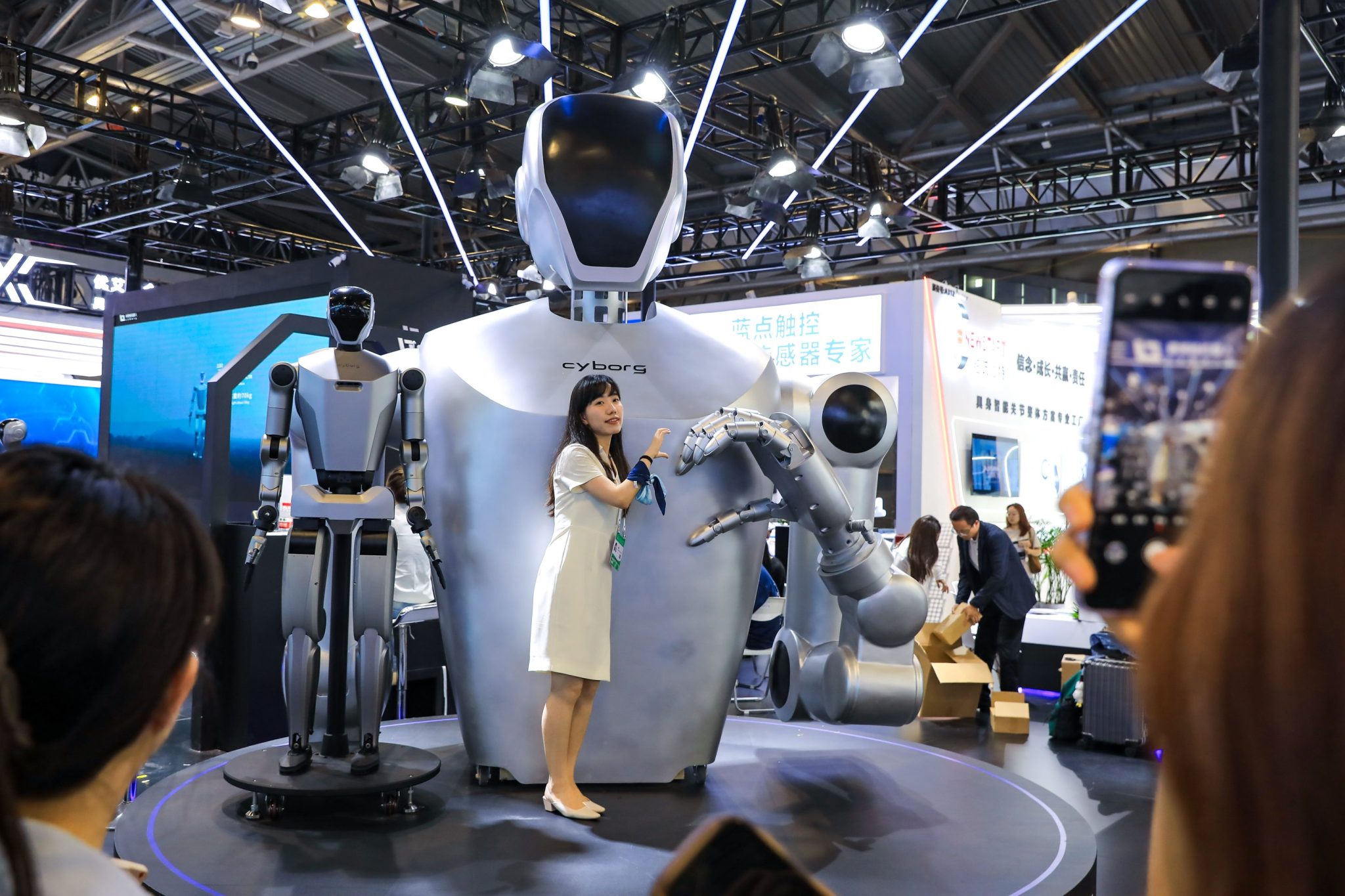
China’s powerful economic-planning agency warned of the risks of a bubble forming in the country’s humanoid robotics industry, issuing a rare official expression of concern about a pivotal sphere of technology.
The National Development and Reform Commission, which sets economic strategy and shifts in policy, called attention Thursday to the proliferation of remarkably similar robots from more than 150 companies in the same field. The country must prevent that flood from overwhelming the market and squeezing out real research and development initiatives, agency spokeswoman Li Chao told reporters in Beijing on Thursday.
The call for vigilance reflects Beijing’s unease over excess investment rolling into a sector it bills as one of the biggest catalysts for the economy. That recalls past over-spending in sectors from bike-sharing to semiconductors, many of which ended in shakeups that eradicated smaller players. Shares in industry leader UBTech Robotics Corp., which could benefit from consolidation, gained more than 4% on Friday.
“Frontier industries have long grappled with the challenge of balancing the speed of growth against the risk of bubbles—an issue now confronting the humanoid robot sector as well,” Li said.
Humanoid robot development and investment have exploded since Unitree’s dancing droids charmed a nationwide audience during the Spring Festival Gala earlier this year. The ruling Communist Party designated the industry one of six new economic growth drivers, in guidelines for drafting China’s development plan for the five years through 2030.
Unitree founder Wang Xingxing sat in the front row during a seminal meeting between tech leaders such as Jack Ma and President Xi Jinping in February. Since then, droids —made by fast-growing startups such as AgiBot and Galbot—have exploded across social media: running marathons, kickboxing and making coffee.
The spotlight of attention has fueled investor interest in the sector, sending the Solactive China Humanoid Robotics Index—which tracks the shares of robot-related companies—up nearly 30% this year.
Citigroup Inc. expects the market to hit $7 trillion by 2050. Still, widespread adoption of humanoid robots by households or factories is likely years away.
For now, the authorities will continue to speed up efforts to build mechanisms for market entry and exit to create an environment of fair competition, Li said at the briefing. Beijing will accelerate research and development of core technologies while supporting the construction of training and testing infrastructure, she added.
The government will also promote the consolidation and sharing of technology and industrial resources in the sector across the nation, in an attempt to expedite the application of humanoid robots in real life, she said.















